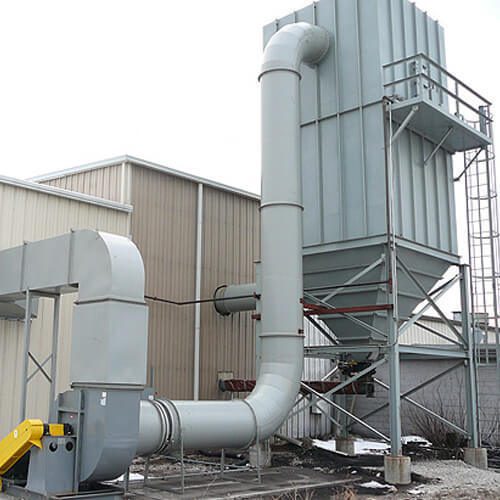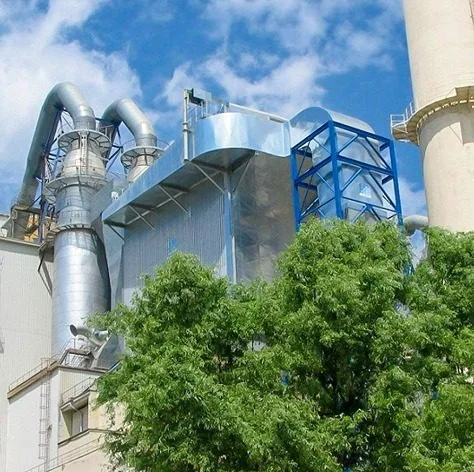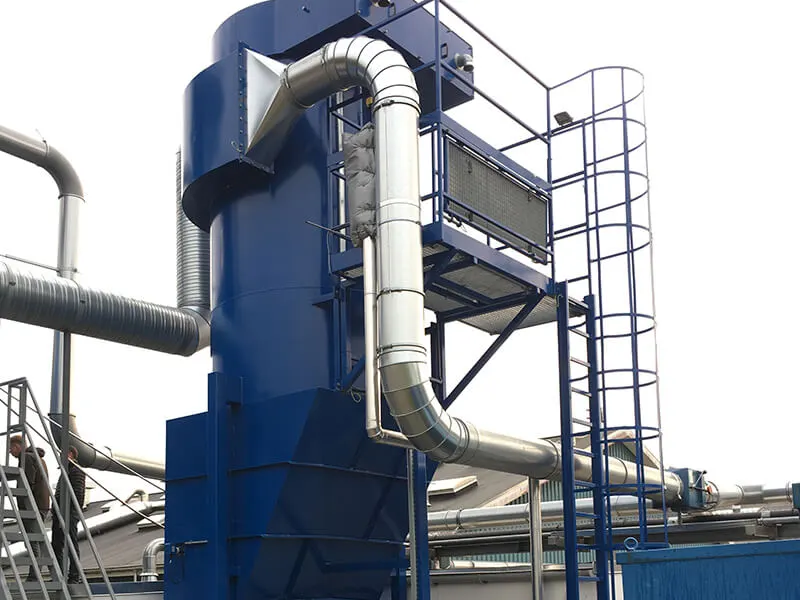With growing concerns about environmental sustainability, industries are increasingly seeking eco-friendly solutions that reduce their environmental footprint. Industrial filtration, particularly in dust collection systems, plays a crucial role in maintaining air quality by removing particulate matter from various emission sources. However, traditional filter media used in dust collectors are often made of synthetic materials, which contribute to waste and pollution.
The development of biocompatible and biodegradable filter media offers a promising solution to address these concerns. These innovative materials not only enhance dust collection performance but also minimize environmental impact by reducing the reliance on synthetic materials. In this blog, we will explore the benefits of biocompatible filter media, their role in promoting sustainability, and how Intensiv-Filter Himenviro can help industries adopt these advanced solutions as part of their green initiatives.
To structure this blog according to the marketing funnel considerations (awareness, consideration, and decision stages), we will guide potential customers through understanding the technology, evaluating its benefits, and making a decision on how Intensiv-Filter Himenviro can support their journey toward sustainable filtration.
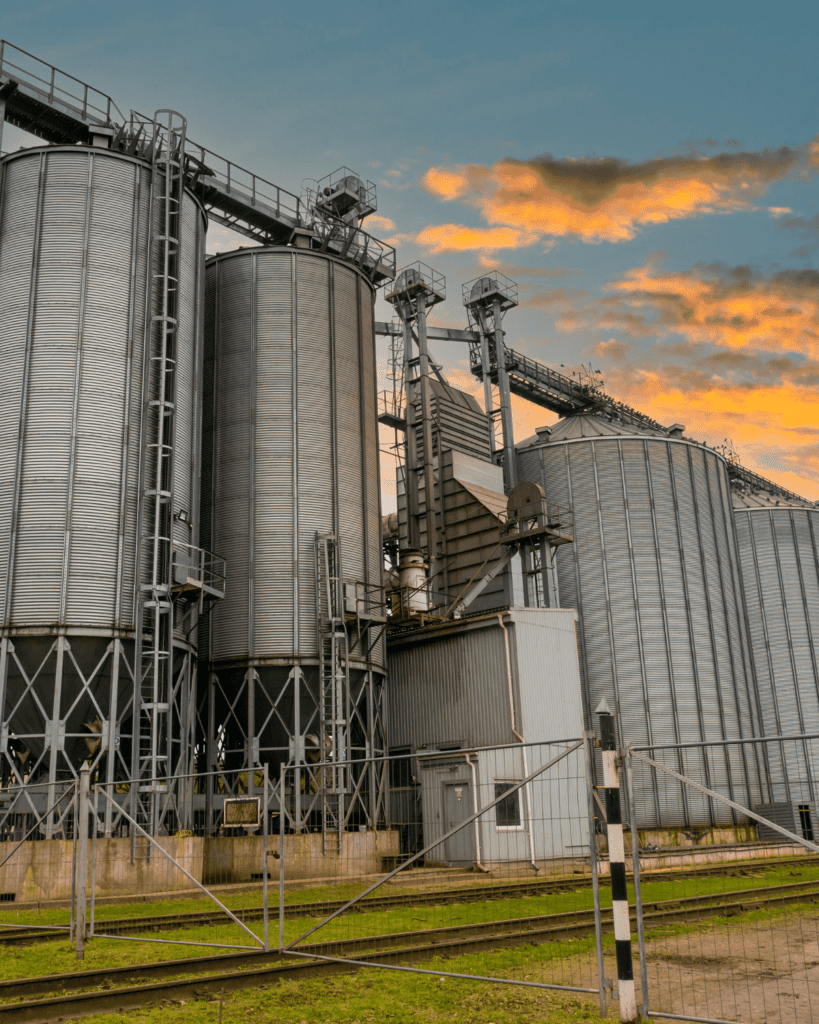
Awareness Stage: Understanding Biocompatible Filter Media and Its Environmental Benefits
What Are Biocompatible Filter Media?
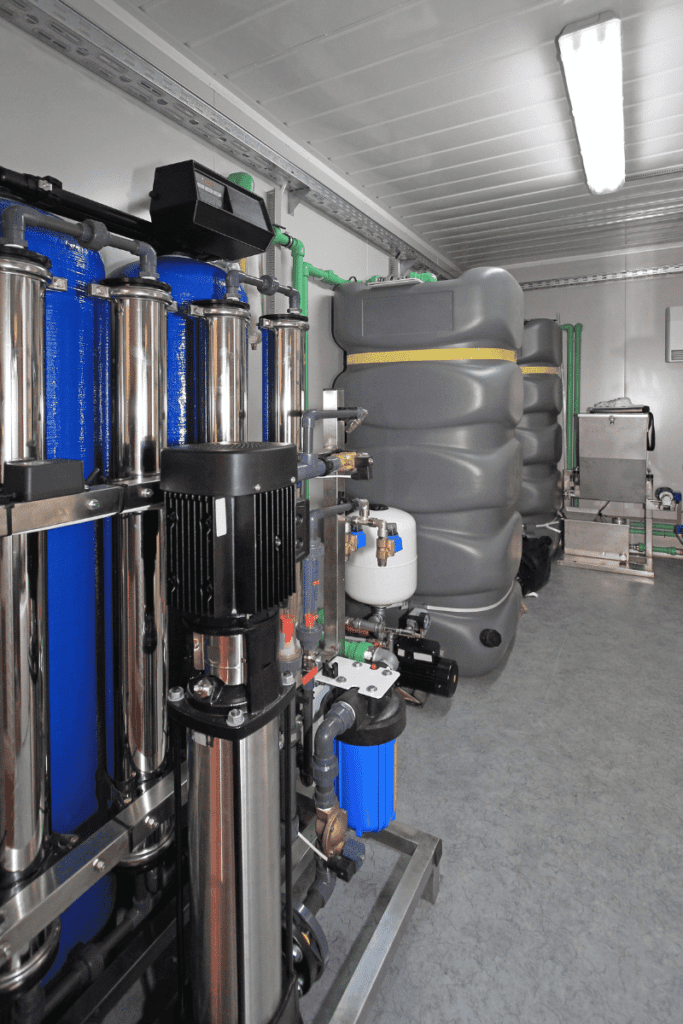
Biocompatible filter media refer to materials used in industrial filtration systems, particularly dust collectors, that are made from natural, renewable, or biodegradable substances. Unlike traditional filter media, which are typically made from synthetic polymers such as polyester or polypropylene, biocompatible media are designed to have minimal environmental impact. These materials can be sourced from plant-based fibers, natural polymers, or other renewable resources, making them more environmentally friendly.
The term “biocompatible” means that these filter media are non-toxic and do not introduce harmful chemicals into the environment during their lifecycle. Moreover, many of these media are biodegradable, meaning they break down naturally without leaving harmful residues, reducing landfill waste and pollution.
Why the Need for Biocompatible Filter Media?
In recent years, industries have been facing increasing pressure to adopt greener technologies and reduce their environmental impact. Regulations on emissions, waste, and resource consumption are becoming more stringent, and consumers are demanding more sustainable practices from businesses. As a result, many industries are looking for innovative ways to minimize waste and emissions while maintaining operational efficiency.
Traditional filter media, while effective at capturing dust and particulates, are not environmentally friendly. They are often non-biodegradable, meaning they contribute to long-term environmental issues like plastic pollution and landfill waste. The disposal of synthetic filter media also poses challenges due to the need for specialized handling and disposal methods, further increasing the environmental burden.
The development of biocompatible filter media offers a sustainable alternative. These eco-friendly materials help industries meet their environmental goals by:
- Reducing reliance on synthetic materials: By using natural or biodegradable materials, industries can reduce their use of non-renewable resources.
- Minimizing waste: Biodegradable filter media break down naturally, reducing the amount of waste sent to landfills.
- Lowering carbon footprint: The production and disposal of biocompatible media typically have a smaller carbon footprint compared to synthetic alternatives.
By adopting biocompatible filter media, industries can align themselves with global sustainability goals and contribute to a cleaner, greener future.
Discover Our Range of Solutions:
Consideration Stage: Evaluating the Benefits of Biocompatible Filter Media
As industries move towards sustainability, decision-makers must evaluate the practicality and performance of biocompatible filter media. In this stage, businesses will consider how these eco-friendly alternatives compare to traditional filter media in terms of efficiency, durability, and cost-effectiveness.
Key Benefits of Biocompatible Filter Media
- Environmental Sustainability
The primary advantage of biocompatible filter media is their positive environmental impact. Made from renewable resources or biodegradable materials, these media reduce the dependency on petroleum-based products, contributing to the reduction of carbon emissions during production. Additionally, at the end of their lifecycle, biocompatible filters decompose naturally, leaving behind no harmful pollutants. - High Filtration Efficiency
Biocompatible filter media are designed to perform on par with, or even exceed, the performance of traditional synthetic filter media. Advanced manufacturing processes have made it possible to create natural fiber-based filters with fine pore structures that effectively capture a wide range of particulate sizes, from coarse dust to fine aerosols.
In industries such as cement manufacturing, steel production, pharmaceuticals, and food processing, maintaining high filtration efficiency is essential for regulatory compliance and environmental protection. Biocompatible filter media are capable of delivering the required performance while also reducing environmental impact. - Cost-Effectiveness in the Long Run
While the initial cost of biocompatible filter media may be higher compared to traditional synthetic filters, they often provide long-term cost savings. The reduced waste management costs, lower environmental compliance fees, and potential tax incentives for using sustainable materials can offset the initial investment. Furthermore, the durability of these materials often means fewer replacements, further driving down long-term costs. - Water and Energy Conservation
Many biocompatible filter media are designed to operate efficiently with lower energy and water consumption. Industries that use wet filtration or require constant cleaning of their dust collection systems can benefit from the lower operational demands of biocompatible filters, leading to savings in both water and energy usage. - Support for Corporate Social Responsibility (CSR) Initiatives
As businesses increasingly prioritize environmental, social, and governance (ESG) factors, adopting biocompatible filter media demonstrates a commitment to sustainable practices. For companies looking to enhance their brand image, appeal to eco-conscious consumers, or attract investors interested in green technologies, biocompatible filtration solutions can be an important component of their CSR initiatives.
Connect with us Now
Decision Stage: How Intensiv-Filter Himenviro Can Help You Transition to Sustainable Filtration Solutions
When it comes to implementing biocompatible filter media, choosing the right partner is crucial for a seamless and successful transition. Intensiv-Filter Himenviro is a trusted leader in providing advanced filtration solutions, offering customized support to help industries achieve their sustainability goals.
Why Choose Intensiv-Filter Himenviro?
- Tailored Solutions for Different Industries
Each industry has unique filtration needs based on the type of emissions and operational conditions. Whether you are in the cement, pharmaceutical, food processing, or steel industry, Intensiv-Filter Himenviro provides customized biocompatible filter media solutions that meet your specific dust collection and environmental requirements. - Expertise in Biocompatible Materials
Intensiv-Filter Himenviro has extensive experience in researching and developing filtration systems that utilize biocompatible and biodegradable filter media. Their advanced R&D capabilities ensure that clients receive cutting-edge solutions that provide both high filtration efficiency and sustainability benefits. With a deep understanding of material science and environmental technologies, Intensiv-Filter Himenviro ensures that each solution is optimized for maximum performance. - Comprehensive Support and Consultation
Making the switch to biocompatible filter media may seem like a daunting process for industries that have traditionally relied on synthetic materials. Intensiv-Filter Himenviro provides comprehensive support throughout the transition, from initial consultations and system assessments to installation and maintenance. Their team of experts works closely with clients to evaluate their specific needs and recommend the most suitable biocompatible materials for their dust collection systems. - Commitment to Sustainability
At Intensiv-Filter Himenviro, sustainability is not just a trend—it is a core value. The company is committed to helping industries reduce their environmental impact through the adoption of greener technologies. By offering biocompatible filtration solutions, Intensiv-Filter Himenviro helps clients achieve regulatory compliance, reduce waste, and lower their carbon footprint, all while maintaining operational efficiency. - Lifecycle Management and Maintenance Services
Adopting biocompatible filter media is not just about purchasing the right materials—it’s also about ensuring long-term performance. Intensiv-Filter Himenviro provides ongoing maintenance and lifecycle management services to ensure that biocompatible filters remain effective and efficient throughout their operational life. This includes regular performance monitoring, replacement schedules, and system upgrades to optimize dust collection and minimize environmental impact.
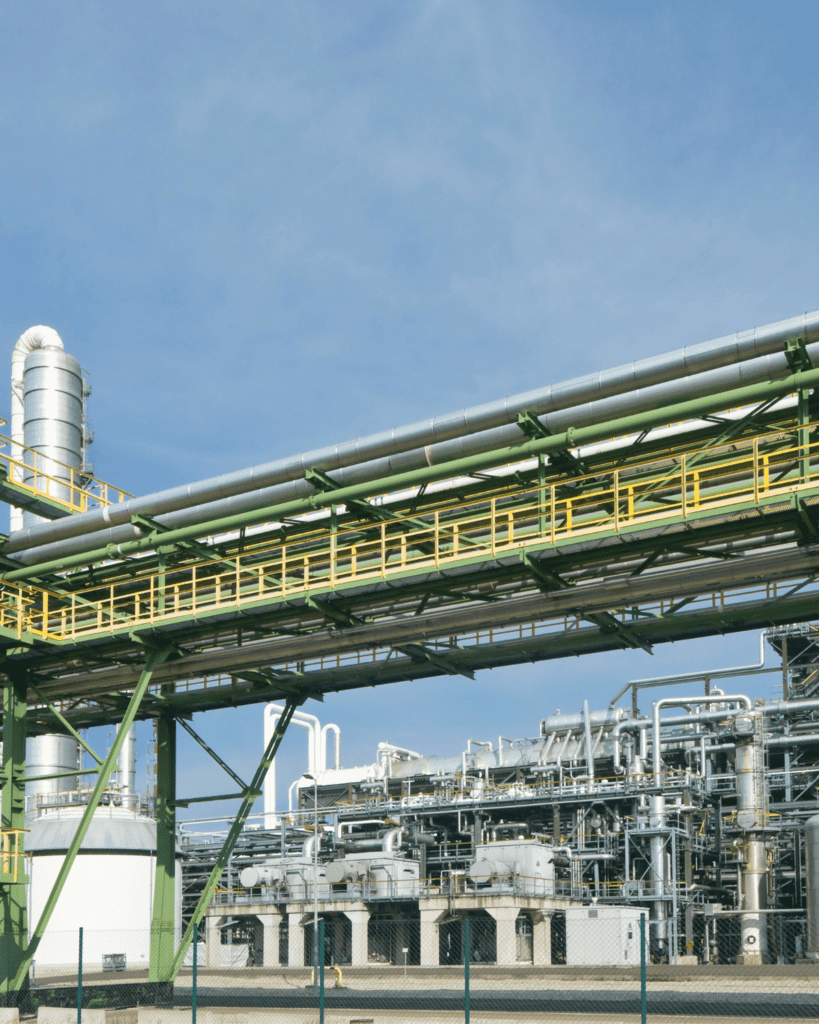
Conclusion: A Greener Future with Biocompatible Filtration
The shift toward sustainable industrial practices is no longer optional—it is a necessity for industries that want to remain competitive in a rapidly evolving regulatory and consumer landscape. Biocompatible filter media offer a practical and effective solution for industries looking to reduce their environmental impact while maintaining high dust collection performance.
By adopting biocompatible filter media, businesses can benefit from reduced waste, lower operational costs, and enhanced environmental compliance. At the same time, they contribute to broader sustainability goals, supporting global efforts to combat pollution and reduce the use of non-renewable resources.
Intensiv-Filter Himenviro is your partner in making this transition. With tailored solutions, expert guidance, and a commitment to sustainability, Intensiv-Filter Himenviro is well-equipped to help industries navigate the challenges and opportunities of adopting biocompatible filtration technologies.
Together, we can build a cleaner, greener future—one filter at a time.

